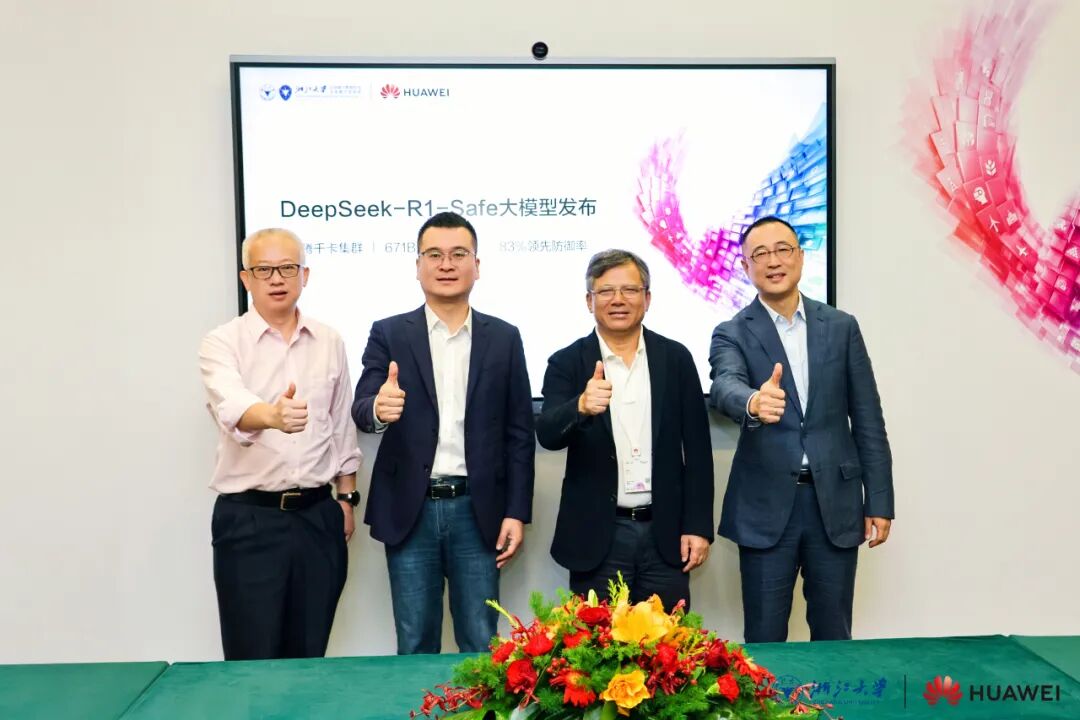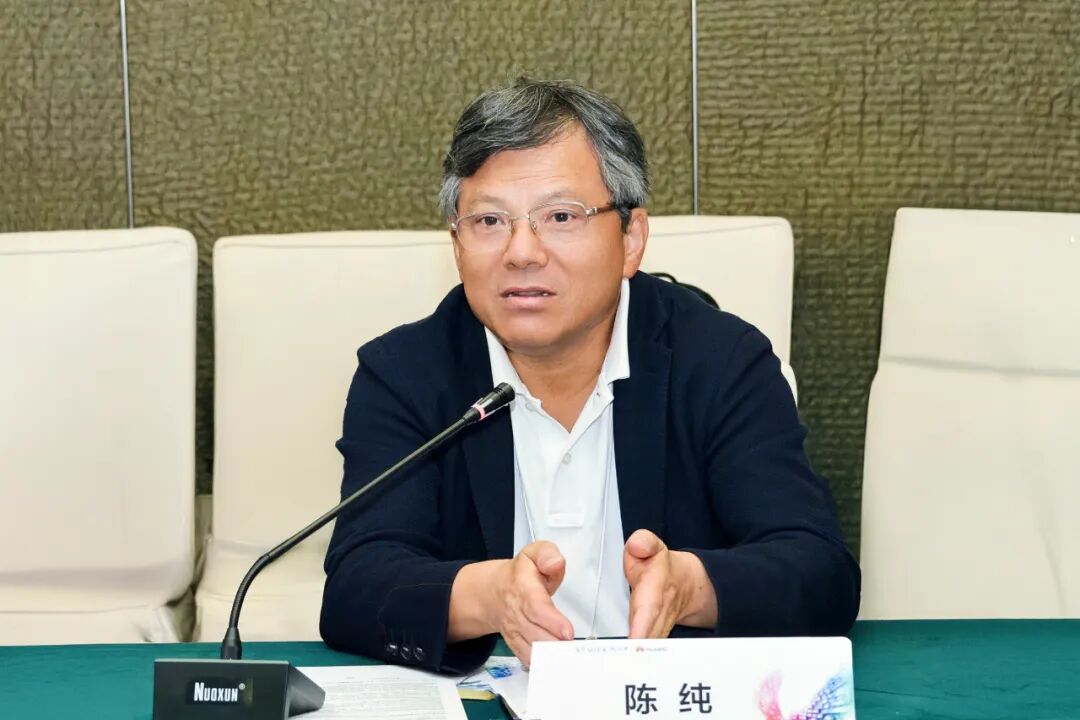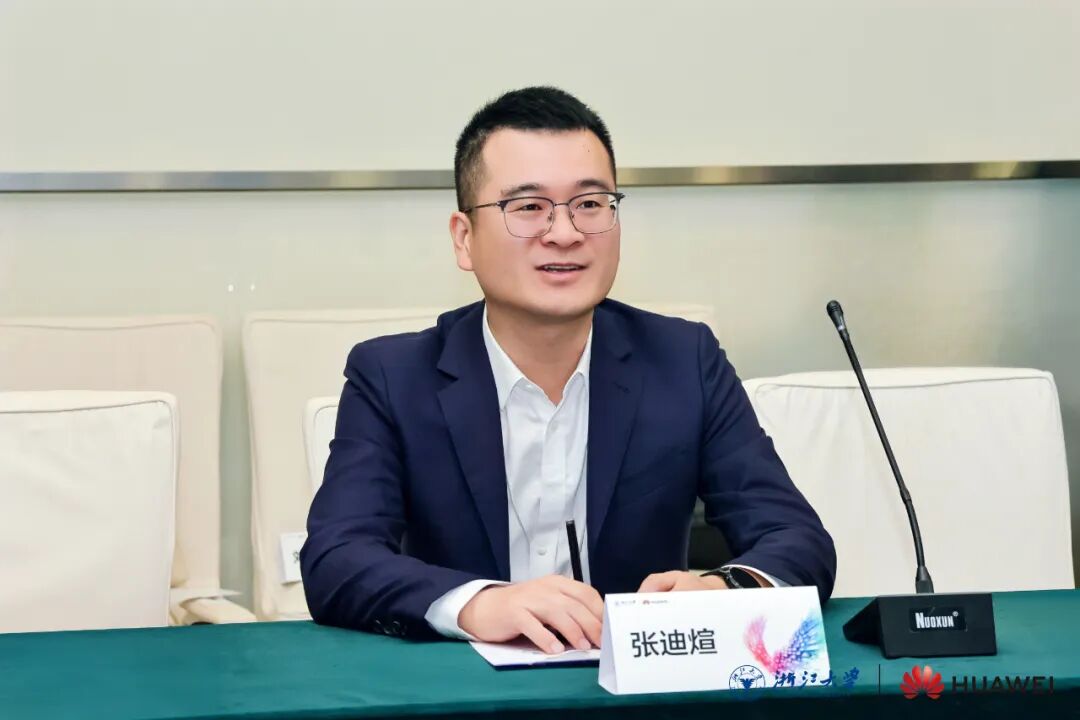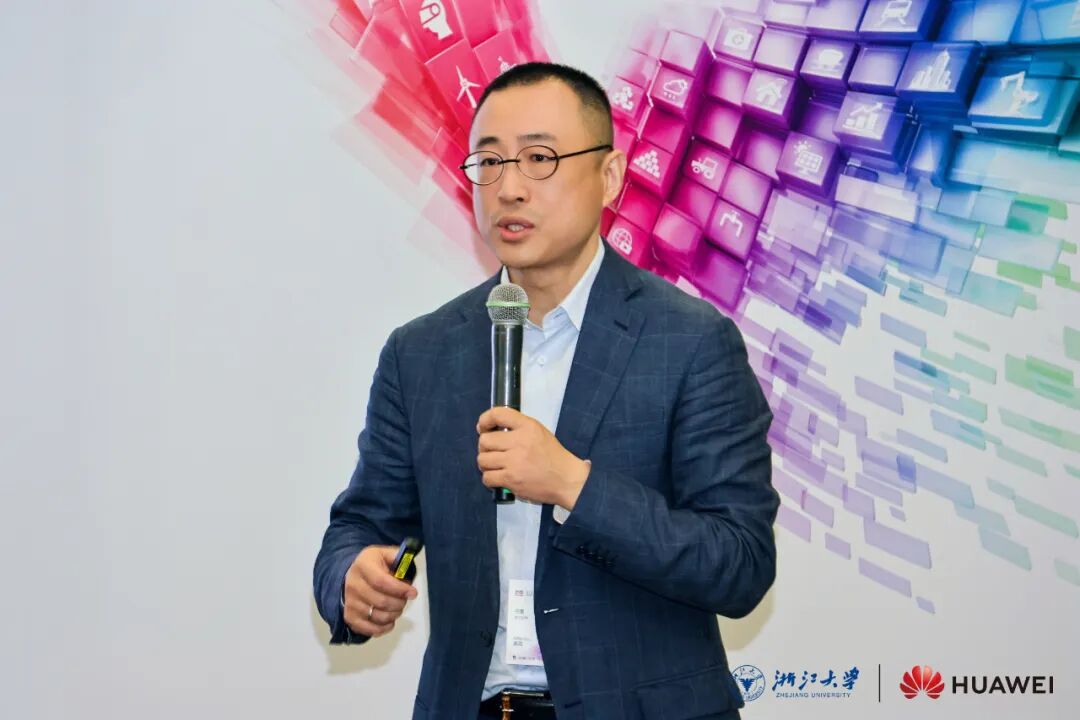On September 18, 2025, Zhejiang University and Huawei Technologies Co., Ltd. unveiled China’s first foundation model built on the Ascend thousand-card compute platform—the DeepSeek-R1-Safe—at Huawei Connect 2025. The launch ceremony was witnessed by Chen Chun, Academician of the Chinese Academy of Engineering, and Zhang Dixuan, President of Huawei Ascend Computing Business. The release was jointly officiated by Ren Kui, Dean of the College of Computer Science and Technology at Zhejiang University and Executive Deputy Director of the State Key Laboratory of Blockchain and Data Security, alongside Jiang Ming, Huawei Fellow and Director of the Computing Architecture and Design Department. Attendees also included Qin Zhan, Vice Dean of the School of Cyber Science and Technology at Zhejiang University, Yang Baochuan, Director of Huawei’s Computing Technology Development Department, and Cui Meifang, Director of the University Research and Talent Ecosystem Department. SeveralZJU100 Young Professors were also present.

Launch Ceremony
Academician Chen Chun congratulated the release of DeepSeek-R1-Safe and expressed gratitude for Huawei’s long-term support. He highlighted that Zhejiang University’s College of Computer Science and Technology has built a strong research team of outstanding young talents from home and abroad. Leveraging the Ascend ecosystem, the team successfully developed an independent end-to-end post-training framework and carried out China’s first secure large-model training on a thousand-card cluster. Chen emphasized that DeepSeek-R1-Safe aims to set a benchmark for safe and trustworthy AI applications, fostering synergy between AI safety and industrial ecosystems. He expressed hope for deeper collaboration with Huawei to further advance China’s AI capabilities.

Chen Chun, Academician of the Chinese Academy of Engineering
Zhang Dixuan, President of Huawei Ascend Computing Business, noted that since 2019, Huawei has continuously increased R&D investment to overcome external challenges, achieving breakthroughs in key technologies and making significant progress in hardware and ecosystem development. At Huawei Connect 2025, Huawei also announced its next-generation Ascend AI hardware along with a comprehensive open-source software strategy, spanning compilers, runtime drivers, and other core components. He stressed that through deep openness and collaboration with universities and industry partners, Huawei aims to drive foundational software innovation and strengthen AI safety. Zhang added that close cooperation with Zhejiang University will further enhance China’s capacity for original innovation and help build a secure, trustworthy, and competitive AI ecosystem to support high-quality development.

Zhang Dixuan, President of Huawei Ascend Computing Business
Professor Ren Kui introduced the DeepSeek-R1-Safe-671B foundation model’s core innovations. Starting from the foundational level, the research team built a comprehensive post-training safety framework that spans the entire process—from high-quality safety corpora, through balanced and optimized safety training, to a fully self-developed end-to-end hardware–software platform.For the first time, the team achieved secure training of a trillion-parameter model on the Ascend thousand-card platform, systematically addressing key training environment challenges. They developed tools for synchronizing server dependencies, sharing data and weights, and enabling collaborative training and inference.
The model is now fully open-source on ModelZoo, GitCode, GitHub, Gitee, and ModelScope. Testing results show:
Nearly 100% defense success rate against 14 types of harmful content (toxic speech, politically sensitive topics, illegal behavior incitement, etc.).
Over 40% defense success rate against advanced jailbreak scenarios (contextual assumptions, role-play, encrypted encoding, etc.).
Overall safety defense capability of 83%, outperforming contemporary models such as Qwen-235B and DeepSeek-R1-671B by 8–15% under the same test conditions.
On general benchmarks (MMLU, GSM8K, CEVAL), the model maintained less than 1% performance loss compared to DeepSeek-R1.
These results demonstrate that DeepSeek-R1-Safe achieves a strong balance between safety and performance, significantly improving defense capabilities without compromising usability.

Ren Kui, Dean of the College of Computer Science and Technology at Zhejiang University and Executive Deputy Director of the State Key Laboratory of Blockchain and Data Security
In subsequent discussions, participants explored topics such as AI safety governance frameworks, nurturing ecosystems of independent innovation developers, and enhancing university–industry collaboration mechanisms. They agreed that this achievement provides vital support for breaking through AI safety barriers and building an independent intelligent ecosystem in China.
About the State Key Laboratory
The State Key Laboratory of Blockchain and Data Security at Zhejiang University was officially approved by the Ministry of Science and Technology in November 2022, with Academician Chen Chun serving as Director. The lab focuses on the global scientific frontier of blockchain and data security, with the mission of achieving high-level self-reliance in science and technology and establishing world-class strategic research capacity. Its work spans new controllable blockchain systems, digital asset monitoring and tracing, trustworthy software engineering, structured data intelligence, temporal data intelligence, graph data intelligence, data-driven trustworthy AI, intelligent vehicle data security, provable data security, high-performance privacy computing, and trusted data spaces.






